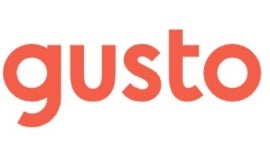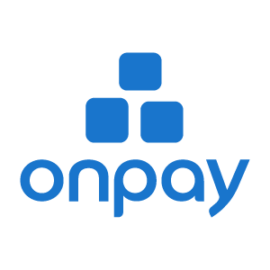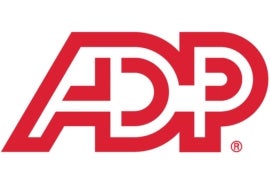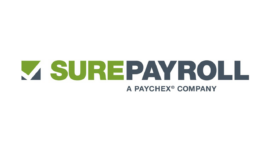Wave offers payroll software along with accounting, invoicing and more. With both full-service and self-service payroll plans, Wave can be an affordable option ― especially when you throw in the free accounting software. That said, not all businesses will like Wave for payroll. It has fewer features (like automation, benefits or HR tools) than many competitors on the market.
If Wave seems too simple, too pricey, or just not quite right for your business, we’ll help you find one of the best Wave alternatives.
Top Wave competitors and alternatives: Comparison table
Every Wave alternative on our list has all the essentials you’d expect from the best payroll software―like calculating paychecks, figuring out your payroll taxes, and creating payroll reports. Plus, they all offer unlimited payroll runs each month, so you’ll never pay extra for running payroll.
Given those similarities, you’ll want to pay attention to factors like pricing, features, and support hours to help you find the right WaveApps alternative.
| Starting base pricing | Starting per-payee pricing | Free trial | General ledger integration | Extended support hours | ||
|---|---|---|---|---|---|---|
| Wave | $20/mo. | $6/mo. | 30 days | Yes | No | Visit Wave |
| Gusto | $40/mo. | $6/mo. | No | Yes | No | Visit Gusto |
| OnPay | $40/mo. | $6/mo. | 1 mo. | Yes | No | Visit OnPay |
| Patriot Payroll | $17/mo. | $4/mo. | 30 days | Yes | No | Visit Patriot |
| Paychex Flex | $39/mo. | $5/mo. | No | Add-on | Yes | Visit Paychex |
| Run Powered by ADP | Custom quote | Custom quote | Up to 3 mos. | Yes | Yes | Visit ADP |
| SurePayroll | $19.99/mo. | $4/mo. | No | Yes | Yes | Visit SurePayroll |
Pricing and details up to date as of 2/23/2024.
Top Wave competitors
Below, we’ll tell you more about the best Wave competitors we found ― many of which happen to be among the best payroll software for small business, period. We’ll break down features, pros, cons and pricing for each option.
Gusto: Best for well-rounded payroll software

Gusto payroll software provides an all-around solid alternative to Wave. For instance, Gusto may not be the cheapest payroll software or have the most HR features, but it does have competitive pricing and plenty of HR features. So even if Gusto isn’t the best at every single thing, it’s very good at a whole lot.
Likewise, Gusto’s plans range from the payroll-focused Simple to the feature-rich Premium, with each tier offering a clear upgrade to features and value. That means Gusto can comfortably work for businesses that have simple payroll needs as well as businesses looking to tackle more difficult payroll and HR needs ― and there’s a good chance Gusto can work for your business.
Pricing
Gusto offers four different plan tiers:
- Simple plan: $40 per month plus another $6 per payee.
- Plus plan: $80 per month plus another $12 per payee.
- Premium plan: Enterprise plan with custom pricing.
- Contractor Only plan: $35 per month plus $6 per contractor.
You can also add on extras like international contractor payments, 401(k) savings, commuter benefits and more for varying additional fees.
Features
- Payroll, benefits and talent management tools.
- Many software integrations.
- Time and project tracking solutions.
- Lifetime employee access.
Pros and cons
| Pros | Cons |
|---|---|
|
|
For more information, read the full Gusto review.
OnPay: Best for industry-specific payroll

While most businesses can get by with one-size-fits-all payroll software, sometimes it’s nice to use a software company that gets your specific industry ― which is just how OnPay operates.
Take employee pay, for instance. OnPay can easily deal with the wage tip makeup and multiple pay rates that are unique to restaurants. Or look at taxes. OnPay understands different industries have different requirements, so it will take care of agriculture-specific Form 943 for your farm or ranch. OnPay’s industry expertise makes payroll services simpler for you.
Even setting that aside, OnPay is a solid payroll software. It doesn’t charge extra fees (including common ones, like for wage garnishment). It has a good number of HR, benefits and attendance management tools. That makes it a good option for any business ― and a better option for businesses with specialized niche payroll needs.
Pricing
OnPay has very simple pricing, with just one plan:
- $40 per month plus another $6 per payee.
That plan includes all its features, so you won’t get hit with extra fees for certain tools. Plus, OnPay lets you get your first month for free.
Features
- Payroll services tailored to various industries.
- Benefit management, onboarding and other HR tools.
- Integrations with popular accounting software.
- Add-on insurance brokerage in all 50 states.
Pros and cons
| Pros | Cons |
|---|---|
|
|
For more information, read the full OnPay review.
Patriot Payroll: Best for first-time payroll

If you’ve got a brand-new business or you just hired your first employees, Patriot Payroll offers an excellent introduction to payroll software. First off, the self-service tax plan makes Patriot highly affordable ― perfect for businesses without much budget wiggle room. And while Payroll doesn’t offer all the features of pricier payroll software, it does have options for essentials like 401(k) integrations and time tools. In other words, you can get the important tools without getting overwhelmed by other features.
Payroll also provides free white-glove setup, so Patriot will do a lot of the legwork for you. Plus, customers have rave reviews about Patriot’s customer service, which means you should have no trouble getting help as you start your payroll journey.
Pricing
Patriot has two payroll plans:
- Basic Payroll plan: $17 per month plus another $4 per payee.
- Full Service Payroll plan: $37 per month plus another $4 per payee.
The Basic plan requires you to take care of your own payroll taxes, while the Full Service plan does taxes for you. You can try either plan free for 30 days.
Features
- Self-service or full-service payroll plans.
- Self-service portals for employees.
- No-cost integrations with external 401(k) plans.
- Optional add-ons for time and attendance and HR tools.
Pros and cons
| Pros | Cons |
|---|---|
|
|
For more information, read the full Patriot Payroll review.
Paychex Flex: Best for HR solutions

If you wish Wave included HR tools along with payroll, then you might like Paychex Flex. It offers all the payroll tools your business could need, but Paychex also gives you access to a full suite of HR features too. It has benefits management, for instance, including less-common benefits like financial wellness programs. And some plans include tools like a learning management system, perfect for keeping your team on the same page with thorough documentation.
All its tools make Paychex a great fit for even very large companies. But with several different tiers of plans, Paychex can work for much smaller startups too. It can scale with your business, giving you both the payroll and the HR solutions you need.
Pricing
Paychex Flex lets you choose from three plans:
- Essentials plan: Starts at $39 per month plus another $5 per payee.
- Select plan: Custom pricing.
- Pro plan: Custom pricing.
The Essentials plan has all the basic payroll features, while the Select plan adds on a learning management system (LMS). If you want talent management, workforce management and top-tier payroll features, you’ll need the Pro plan.
Features
- Payroll, benefits, HR and workforce management tools.
- Multiple employee pay options, including tip disbursement and pay cards.
- Comprehensive HR features, such as handbook wizard and learning management system.
- Apps for both employees and employers.
Pros and cons
| Pros | Cons |
|---|---|
|
|
For more information, read the full Paychex Flex review.
RUN Powered by ADP: Best for larger businesses

For businesses that need more than Wave can offer ― more payroll tools, more HR features, more solutions for data analysis ― we suggest RUN Powered by ADP. It has more advanced payroll tools, like multi-jurisdictional payroll (complete with taxes for different states). ADP also offers lots of HR tools, including features for background checks and recruiting. You can even get marketing tools with your payroll plan.
Throw in add-ons like attendance, retirement, workers’ comp and health insurance tools and you’ve got pretty much everything your big business could want from a payroll software. And as an added bonus, ADP offers 24/7 customer support, so you can get prompt help and keep your business on track.
Pricing
ADP doesn’t offer any pricing information online. You’ll need to get in touch with a rep (via its website or over the phone) to get custom payroll pricing for your company.
Features
- Payroll-focused or payroll-with-HR plans.
- Powerful, customizable payroll and HR reporting tools.
- Add-ons for time, retirement, workers’ comp and marketing.
Pros and cons
| Pros | Cons |
|---|---|
|
|
For more information, read the full ADP review.
SurePayroll: Best for affordability

If even Wave feels like a stretch for your budget, consider SurePayroll instead. It’s one of the cheapest payroll software tools out there, with a self-service plan under $20 per month and a full-service plan under $30 per month. Even the per-payee cost is lower than you see with most software, with $4 or $5 per month instead of $6.
Don’t worry, though ― SurePayroll doesn’t skimp on what matters. You still get core payroll tools, plus features like payroll automation and extended customer support hours. And SurePayroll is owned by Paychex (reviewed above), so you know it’s a trustworthy product even with the bargain pricing.
Pricing
SurePayroll has two plans, with the difference coming down to taxes:
- No Tax Filing plan: $19.99 per month plus another $4 per payee per month.
- Full-Service plan: $29.99 per month plus another $5 per payee per month.
As an added benefit, you can get up to six months of SurePayroll for free. It’s not a six-month trial, though ― instead you’ll alternate paid and free months over your first year.
Features
- Full-service and DIY tax filing plans.
- Payroll automation, including benefit deductions.
- Tax calculations and calculation guarantee with self-service plan.
Pros and cons
| Pros | Cons |
|---|---|
|
|
For more information, read the full SurePayroll review.
Is Wave worth it?
Wave payroll software can be a good option for some businesses. Its free accounting and invoicing tools add extra value, especially to its affordable self-service payroll plan.
If you already have accounting software, though, Wave may not be your best option. You can find cheaper self-service payroll tools or similarly priced full-service payroll software with more robust features.
Wave pros and cons
While some users really like Wave, others have complaints about its software. Take a look at its biggest pros and cons to decide if you’re more likely to prefer Wave itself or one of the Wave alternatives above.
| Pros | Cons |
|---|---|
|
|
Wave pricing
Wave payroll pricing works a bit differently than other software. Rather than offering different plans, Wave charges by the feature.
The basic Wave invoicing and accounting features are totally free.
If you add payroll, your Wave payroll costs depend on your tax service:
- Tax service states for $40 per month plus another $6 per payee.
- Self-service states for $20 per month plus another $6 per payee.
Tax service is available in just 14 states. If you’re in one of the other 36 states, you’ll have to choose the self-service plan.
You can also add these features:
- Mobile receipts for $8 per month or $72 per year.
- Accounting and payroll coaching for $379.
- Bookkeeping support for $149 per month.
- Payments, with the Starter plan at $0 and the Pro plan at $16 per month.
Wave does offer a free 30-day trial of its payroll software, so you can try it out before committing.
Do you need an alternative to Wave?
Depending on your state, you may need an alternative to Wave if you want automatic tax payments and filing. Wave doesn’t offer tax services in most states — 36 to be exact — so you might want to find a WaveApp alternative that does taxes in your state.
You may also want a Wave alternative if you have a medium- or large-sized business with more complex payroll needs. Wave keeps things pretty simple. For instance, it doesn’t have all the payroll automation features its competitors have, and it doesn’t have any tools for benefits. Even if you don’t need enterprise payroll software just yet, your larger business may outgrow Wave pretty quickly.
Methodology
We looked at many different payroll software to find the best Wave alternatives. We analyzed factors including customer reviews, pricing, features, customer support and more to get our review for each Wave competitor.

